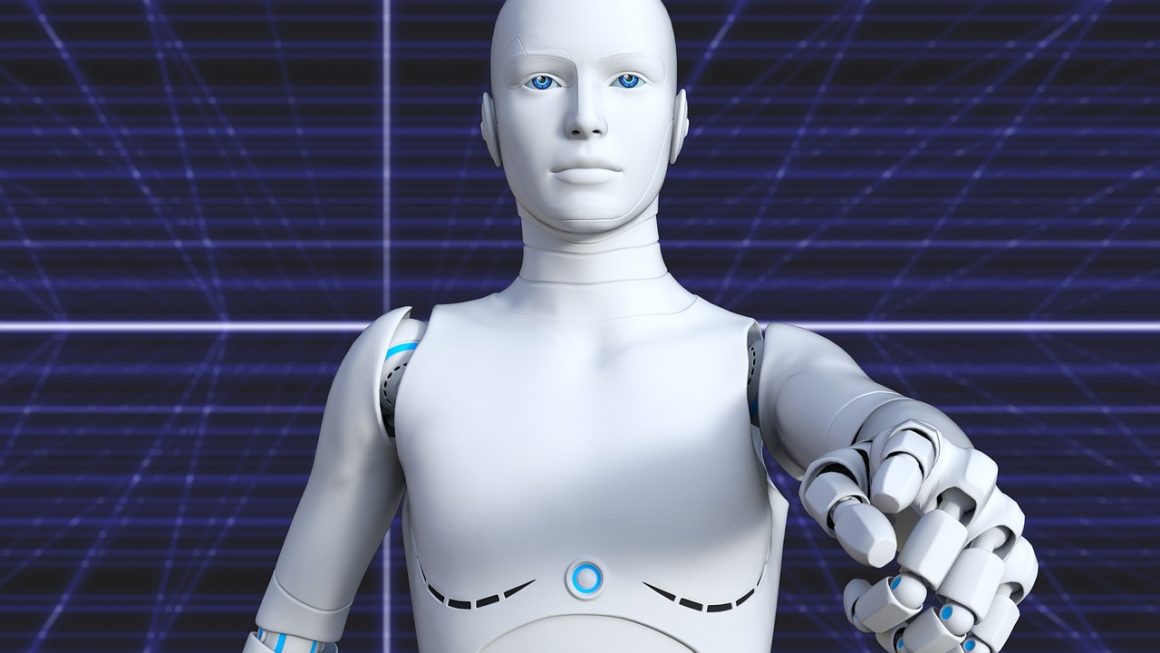Artificial intelligence (AI) is rapidly transforming industries and reshaping the way we live and work. From automating mundane tasks to driving breakthroughs in healthcare and scientific research, AI’s potential seems limitless. This blog post delves into the diverse applications of AI across various sectors, highlighting its impact and offering insights into the future of this groundbreaking technology.
AI in Healthcare
AI is revolutionizing healthcare, offering solutions for diagnosis, treatment, and patient care. Its ability to analyze vast amounts of medical data enables faster and more accurate diagnoses, personalized treatment plans, and improved patient outcomes.
AI-Powered Diagnostics
AI algorithms can analyze medical images like X-rays, MRIs, and CT scans with remarkable accuracy. This assists radiologists in identifying diseases such as cancer, Alzheimer’s, and cardiovascular conditions at earlier stages.
- Example: Google’s Lymph Node Assistant (LYNA) can detect metastatic breast cancer in lymph node biopsies with greater accuracy than human pathologists in some cases.
- Benefit: Earlier detection leads to more effective treatment and improved survival rates.
Personalized Medicine
AI can analyze a patient’s genetic information, lifestyle, and medical history to create personalized treatment plans. This targeted approach ensures that patients receive the most effective therapies with minimal side effects.
- Example: AI is being used to predict a patient’s response to different medications, allowing doctors to prescribe the most suitable drug from the start.
- Benefit: Improved treatment outcomes and reduced healthcare costs.
Drug Discovery and Development
AI is accelerating the drug discovery process by analyzing vast datasets of chemical compounds and biological pathways. This helps researchers identify potential drug candidates more quickly and efficiently.
- Example: AI algorithms are used to predict the efficacy and safety of new drugs, reducing the need for extensive and costly clinical trials.
- Benefit: Faster development of life-saving medications.
AI in Finance
The financial industry is leveraging AI to improve efficiency, detect fraud, and provide personalized financial services. AI-powered solutions are transforming areas like trading, risk management, and customer service.
Algorithmic Trading
AI algorithms can analyze market data in real-time and execute trades automatically. This enables traders to capitalize on fleeting opportunities and make more informed decisions.
- Example: High-frequency trading (HFT) firms use AI to execute trades at speeds that are impossible for human traders.
- Benefit: Increased trading efficiency and profitability.
Fraud Detection
AI algorithms can identify fraudulent transactions by analyzing patterns and anomalies in financial data. This helps financial institutions protect their customers and prevent financial losses.
- Example: Banks use AI to detect suspicious credit card transactions and prevent identity theft.
- Benefit: Reduced fraud and improved security.
Personalized Financial Advice
AI-powered chatbots and virtual assistants can provide personalized financial advice to customers based on their individual needs and goals. This makes financial planning more accessible and affordable.
- Example: Robo-advisors use AI to manage investment portfolios and provide financial advice to clients.
- Benefit: Democratized access to financial services.
AI in Manufacturing
AI is transforming manufacturing by optimizing processes, improving quality control, and enabling predictive maintenance. This leads to increased efficiency, reduced costs, and enhanced product quality.
Predictive Maintenance
AI algorithms can analyze data from sensors on equipment to predict when maintenance is needed. This helps manufacturers avoid costly downtime and extend the lifespan of their equipment.
- Example: AI is used to predict when a machine is likely to fail, allowing maintenance to be scheduled before a breakdown occurs.
- Benefit: Reduced downtime and maintenance costs.
Quality Control
AI-powered vision systems can inspect products for defects with greater accuracy and speed than human inspectors. This ensures that only high-quality products are shipped to customers.
- Example: AI is used to inspect electronic components for defects on assembly lines.
- Benefit: Improved product quality and reduced scrap rates.
Supply Chain Optimization
AI can optimize supply chain operations by predicting demand, managing inventory, and improving logistics. This leads to reduced costs and improved customer satisfaction.
- Example: AI is used to predict demand for products, allowing manufacturers to optimize their production schedules.
- Benefit: Reduced inventory costs and improved customer service.
AI in Transportation
AI is revolutionizing transportation, from self-driving cars to optimized logistics and traffic management. This promises to make transportation safer, more efficient, and more sustainable.
Autonomous Vehicles
AI is the core technology behind self-driving cars, enabling them to perceive their surroundings, navigate roads, and make decisions without human intervention.
- Example: Companies like Tesla, Waymo, and Cruise are developing self-driving cars that can operate in a variety of environments.
- Benefit: Increased safety, reduced congestion, and improved accessibility.
Traffic Management
AI can analyze traffic data in real-time to optimize traffic flow, reduce congestion, and improve safety.
- Example: AI is used to adjust traffic light timings based on real-time traffic conditions.
- Benefit: Reduced congestion and improved travel times.
Logistics Optimization
AI can optimize logistics operations by planning routes, managing fleets, and predicting delivery times. This leads to reduced costs and improved customer satisfaction.
- Example: AI is used to optimize delivery routes for trucking companies, reducing fuel consumption and delivery times.
- Benefit: Reduced transportation costs and improved customer service.
AI in Customer Service
AI-powered chatbots and virtual assistants are transforming customer service by providing instant support, resolving issues quickly, and personalizing customer interactions.
Chatbots
AI-powered chatbots can answer customer questions, resolve issues, and provide support 24/7. This frees up human agents to handle more complex issues.
- Example: Many companies use chatbots on their websites to answer common customer questions.
- Benefit: Improved customer satisfaction and reduced customer service costs.
Virtual Assistants
AI-powered virtual assistants can provide personalized support to customers, such as helping them find products, make reservations, or manage their accounts.
- Example: Amazon’s Alexa and Google Assistant are examples of virtual assistants that can be used to provide customer service.
- Benefit: Personalized customer experiences and improved customer loyalty.
Sentiment Analysis
AI can analyze customer feedback to identify customer sentiment and address issues proactively.
- Example: Companies use AI to analyze social media posts and identify customers who are unhappy with their products or services.
- Benefit: Improved customer satisfaction and brand reputation.
Conclusion
AI’s diverse applications are transforming industries across the board, offering solutions to complex problems and driving innovation. From healthcare and finance to manufacturing and transportation, AI is enabling businesses to operate more efficiently, improve customer experiences, and create new opportunities. As AI technology continues to evolve, we can expect to see even more groundbreaking applications in the years to come, further solidifying its role as a transformative force in the modern world. Embracing AI and understanding its potential is crucial for businesses and individuals alike to thrive in the future.




